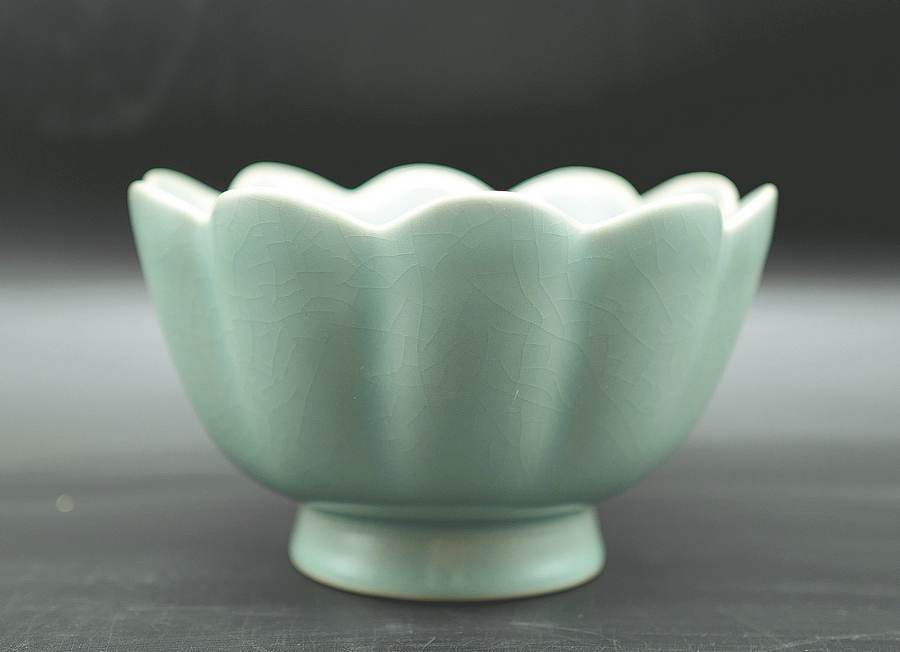

Student becomes teacher
The initial success impelled Wang to make his work more delicate, and it began to verge on that created by ancient craftsmen.
He went on to explore approaches to restoring other glaze colors, such as bluish white and pinkish blue.
In recent years, Wang has delivered Ru porcelain works in more than 50 classic forms, including string-patterned zun (vessels) and narcissus-shaped pots, as well as more than 70 novel wares in the shape of auspicious items and animals, such as the dragon turtle.
His works have made their way to various exhibitions at home and abroad, such as the Chinese traditional craft invitational exhibition held by the Ministry of Culture and Tourism and the Shanghai government last year.
It didn't take long before his products were being sought after.
"I didn't think of making a business out of it at the beginning. It was just out of pure interest," he says, adding that the positive market feedback and recognition from people in the industry have given him motivation to carry on.
The increased business has allowed Wang to take on apprentices since 2002. He established a Ru porcelain research institute and an industry association in the village in 2005 to boost research and standardize inheritance of the ancient craft.
His three sons are also engaged in various porcelain businesses under his influence.
"My father was obsessed with Ru porcelain firing and he asked us to help when he conducted experiments almost every day," his eldest son Wang Xiaolei says.
"It was annoying at first, but gradually we saw the beauty of the craft as he pushed us to immerse ourselves in the field," he adds.
Many of Wang Junzi's apprentices now have their own kilns and are engaging in Ru porcelain production.
Shang Liuqun, a villager from Qingliangsi, has evolved into a Ru porcelain master and runs his own porcelain company, under Wang Junzi's guidance.
"He helped me to work out the glaze shrinking problems that had persisted in my firing of the traditional narcissus-shaped pot," Shang says.
Wang Junzi was named an inheritor of national intangible cultural heritage for his skill in firing Ru porcelain by the Ministry of Culture and Tourism in 2018.
The title has granted him a strong sense of obligation to pass Ru porcelain craftsmanship onto more people.
He has provided his decades of trial-firing data from Ru kilns to various scientific research departments and wrote a book on them. He has also summarized a catchy rhyme that reflects the characteristics of Ru kilns in layman's terms, which has enabled more people to appreciate the charm and culture behind this ancient porcelain.